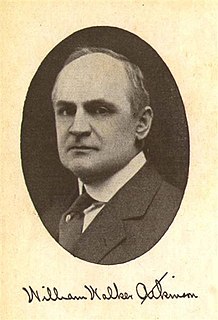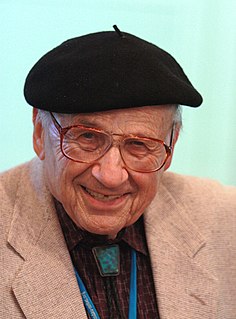A Quote by Allen W. Wood
There is a tradition of "modernist" theology arising out of post-Kantian thought - Fichte was the real father of it, but Schleiermacher and others also developed it - which might have more promise if it had greater influence on popular religion.
Related Quotes
Naming is like putting a stamp on something and fixing it. A kind of formaldehyde sort of fixation, but it becomes dead, sitting there forever, frozen. So, I'm not a great one for these modernist, post modernist, post colonial labels. I think they serve certain purpose. You do need some kind of sign post here and there, but it can also become an end in itself.
Both Kant and Fichte thought of traditions of revealed religion as ways of symbolically (that is, with aesthetic emotional power) thinking about our moral condition. Both thought that religion would become more and not less powerful, emotionally and morally, if the claims of scriptures and religious teachings were taken symbolically rather than literally (whatever 'literally' might mean in the case of claims that are either nonsensical or outdated or historically unsupportable if taken as metaphysical or historical assertions).
Popular religion since the time of Kant and Fichte has gone in a direction they tried to prevent and that has been disastrous for the humanity both of believers and of the rest of us. Look at the role of religion in Republican presidential primaries if you need any confirmation of this last statement.
A large part of our attitude toward things is conditioned by opinions and emotions which we unconsciously absorb as children from our environment. In other words, it is tradition—besides inherited aptitudes and qualities—which makes us what we are. We but rarely reflect how relatively small as compared with the powerful influence of tradition is the influence of our conscious thought upon our conduct and convictions.
It is actually a nice question how far Descartes himself endorses the monological and metaphysically dualistic theory of mind associated with his name and his legacy in early modern philosophy. But Fichte does reject this tradition, by suggesting that an immaterial thinking substance is an incoherent notion, and a rational being whose rationality was not developed through communication with others is a transcendental impossibility.
We are sending out thoughts of greater or less intensity all the time, and we are reaping the results of such thoughts. Not only do our thought-waves influence ourselves and others, but they have a drawing power - they attract to us the thoughts of others, things, circumstances, people, 'luck', in accord with the character of the thought uppermost in our minds.
Protestantism, of course, is much more explicitly divided into different traditions - the Pentecostals, the Anglicans. But there is the main tradition of Protestantism that comes out of the Reformation and that produced people like Kant and Hegel and so on, who are not normally thought of as being people writing in a theological tradition, although Hegel, of course, wrote theology his whole life.
If our entertainment culture seems debased and unsatisfying, the hope is that our children will create something of greater worth.But it is as if we expect them to create out of nothing, like God, for the encouragement of creativity is in the popular mind, opposed to instruction. There is little sense that creativity must grow out of tradition, even when it is critical of that tradition, and children are scarcely being given the materials on which their creativity could work
I am very much a scientist, and so I naturally have thought about religion also through the eyes of a scientist. When I do that, I see religion not denominationally, but in a more, let us say, deistic sense. I have been influence in my thinking by the writing of Einstein who has made remarks to the effect that when he contemplated the world he sensed an underlying Force much greater than any human force. I feel very much the same. There is a sense of awe, a sense of reverence, and a sense of great mystery.
In every system of theology, therefore, there is a chapter De libero arbitrio. This is a question which every theologian finds in his path, and which he must dispose of; and on the manner in which it is determined depends his theology, and of course his religion, so far as his theology is to him a truth and reality
If religion is the opiate of the people, tradition is an even more sinister analgesic, simply because it rarely appears sinister. If religion is a tight band, a throbbing vein, and a needle, tradition is a far homelier concoction: poppy seeds ground into tea; a sweet cocoa drink laced with cocaine; the kind of thing your grandmother might have made.
When you say 'Yes' or promise something, you can very easily deceive yourself and others also, as if you had already done what you promised. It is easy to think that by making a promise you have at least done part of what you promised to do, as if the promise itself were something of value. Not at all! In fact, when you do not do what you promise, it is a long way back to the truth.
































